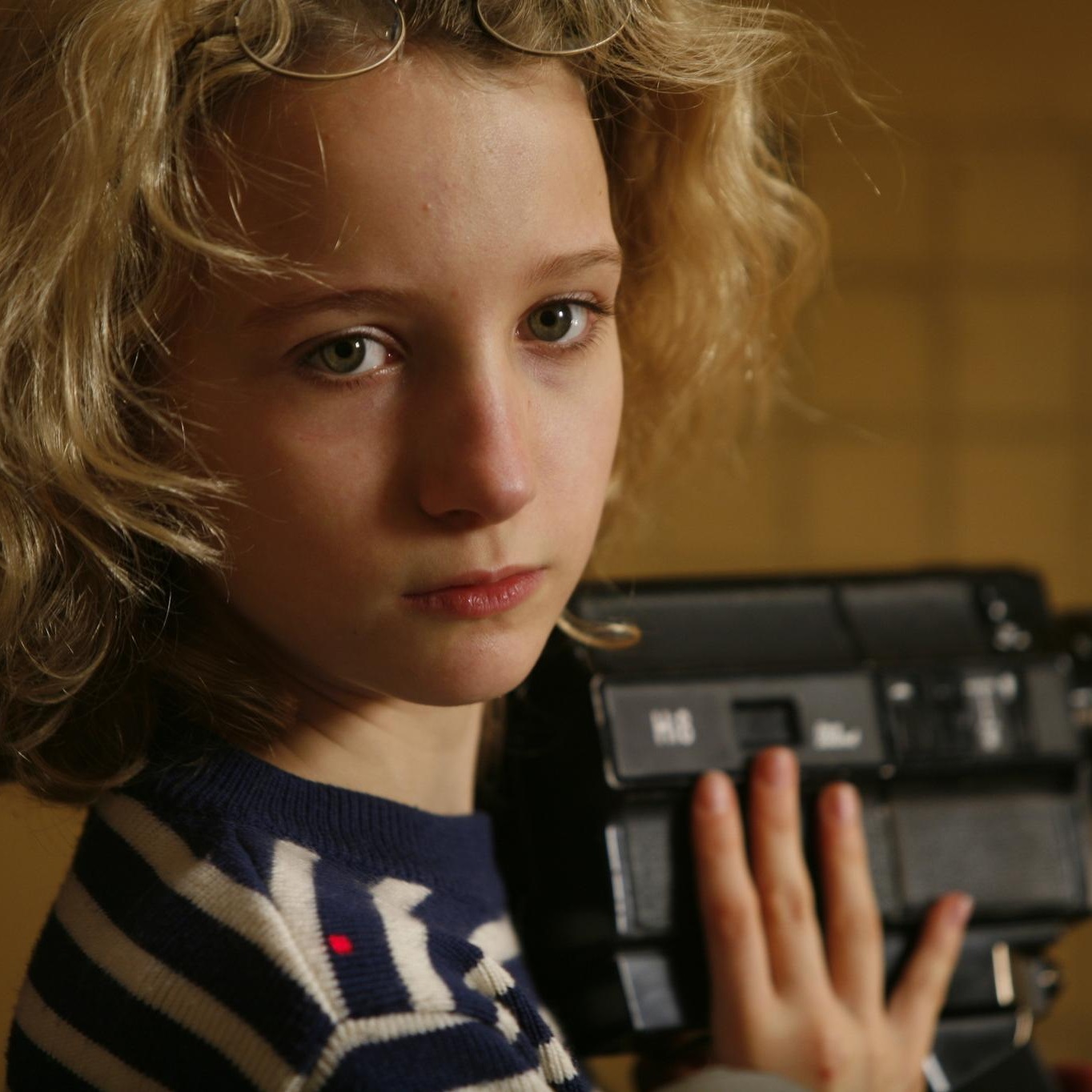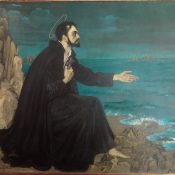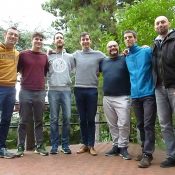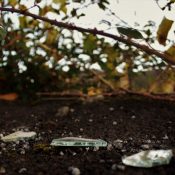On the contrary, we absolutely mustn’t forget it. […]Colombe thinks you can “hurry up and forget” because it all seems so very far away to her, the prospect of old age, as if it were never going to happen to her. But just by observing the adults around me I understood very early on that life goes by in no time at all, yet they’re always in such a hurry, so stressed out by deadlines, so eager for now that they needn’t think about tomorrow . . . But if you dread tomorrow, it’s because you don’t know how to build the present, and when you don’t know how to build the present, you tell yourself you can deal with it tomorrow, and it’s a lost cause anyway because tomorrow always ends up becoming today, don’t you see? So, we mustn’t forget any of this, absolutely not. […] Climb our own personal Everest and do it in such a way that every step is a little bit of eternity. That’s what the future is for: to build the present, with real plans, made by living people.
Muriel Barbery, “The Elegance of the Hedgehog”, Profound Thought no. 8
With these words – in the international bestseller The Elegance of the Hedgehog, adapted in the film The Hedgehog, which we had the pleasure of watching together in the novitiate a short time ago – Muriel Barbery “assigns” the “Profound Thought no. 8” to Paloma, the little co-protagonist of the novel, after a visit of her entire family to her elderly and rich grandmother, who has been “locked up” for some time in a luxury retirement home on the outskirts of Paris.
Paloma is an out-of-the-ordinary twelve year old, immersed in a radical chic environment. Her father is a well-known leftist politician, completely taken up by his political activity; her mother is a fan of psychoanalysis, exotic houseplants and high quality underwear; her sister Colombe, a brilliant student, is at the end of a specialization course in scholastic philosophy. In this context where members of her family confine themselves to living their privileged existence, eventually ending up as prisoners, Paloma attempts to sabotage this order of things, exercising in no uncertain terms her ability to scrutinize the world to which she belongs, piercing its glossy surface. She practices with obstinacy looking outwardly and feeling inwardly, hoping to find a way – someday – to escape from the “goldfish bowl” in which everyone would like to keep her relegated.
The exercise of memory devised by Paloma’s sensitivity is a “lay version” of what, in Ignatian spirituality, is called an examination of conscience or, better, an examination of the day or, even, an examination of awareness. It is not only the first exercise that the Fr. Master explains and proposes to the novices – to be done at the sound of the bell in the middle of the day, for a quarter of an hour before lunch, and then, again, in the evening for 20-30 minutes – but also the first in importance: at most, everything can be left out. Not the Examination, which is the most effective way to practice seeking and finding God in all things. Just as Paloma would want, the examination of awareness is a powerful contestation of the superficial way of consuming the present so as not to think about the future, typical of the world in which we live. Frenziedly gulping down today, in fact, brings us to a point – much more often than one might believe – in which we are nauseated by tomorrow. The examination of awareness proposes, then, an effective remedy to put the right relationship in the present and future and avoid ruining both.
To construct the present I ask for the guidance of the Spirit and I place myself under his action, concentrating on rereading the day and what came with it. I rewind the tape and watch it in slow motion, zooming here and there to return to what I saw, experienced and felt interiorly in the past hours. I savour it again, with the calm necessary to understand it better and to make out elements and nuances which I had not noticed before. In this perspective, even if the future should peek into the present, asking uncomfortable questions, provoking uncertainties and stirring fears, I do not “hasten to forget everything quickly” but I slow myself down to remember and analyze everything patiently so as to obtain the good fruit that is hidden within (e.g. calling my false certainties into question; a greater knowledge of myself, that the fears aroused by the future suggest to me an indirect way; etc.) to more consciously face tomorrow, living today “in such a way that every step is a piece of eternity “(cit.).
Giovanni Lo Giudice, novice of the first year
Scheme for the examination of awareness:
1. I ask the Lord for help to remember what, during the hours which have passed, happened outside of me and the resonances which took or take place inside of me. Firstly, all that is good and beautiful of that which I have seen, lived and received, so as to be grateful for it.
2. I remember what did not happen as it should have and I ask for forgiveness. It is not just a matter of looking for the obvious shortcomings (usually, those are quite evident!) but also and above all the good opportunities whose calls went lost because I was not able to receive them.
3. Finally, I turn to the Lord for a re-launch towards the future with a prayer: a request for help, an act of trust, etc.









Comments